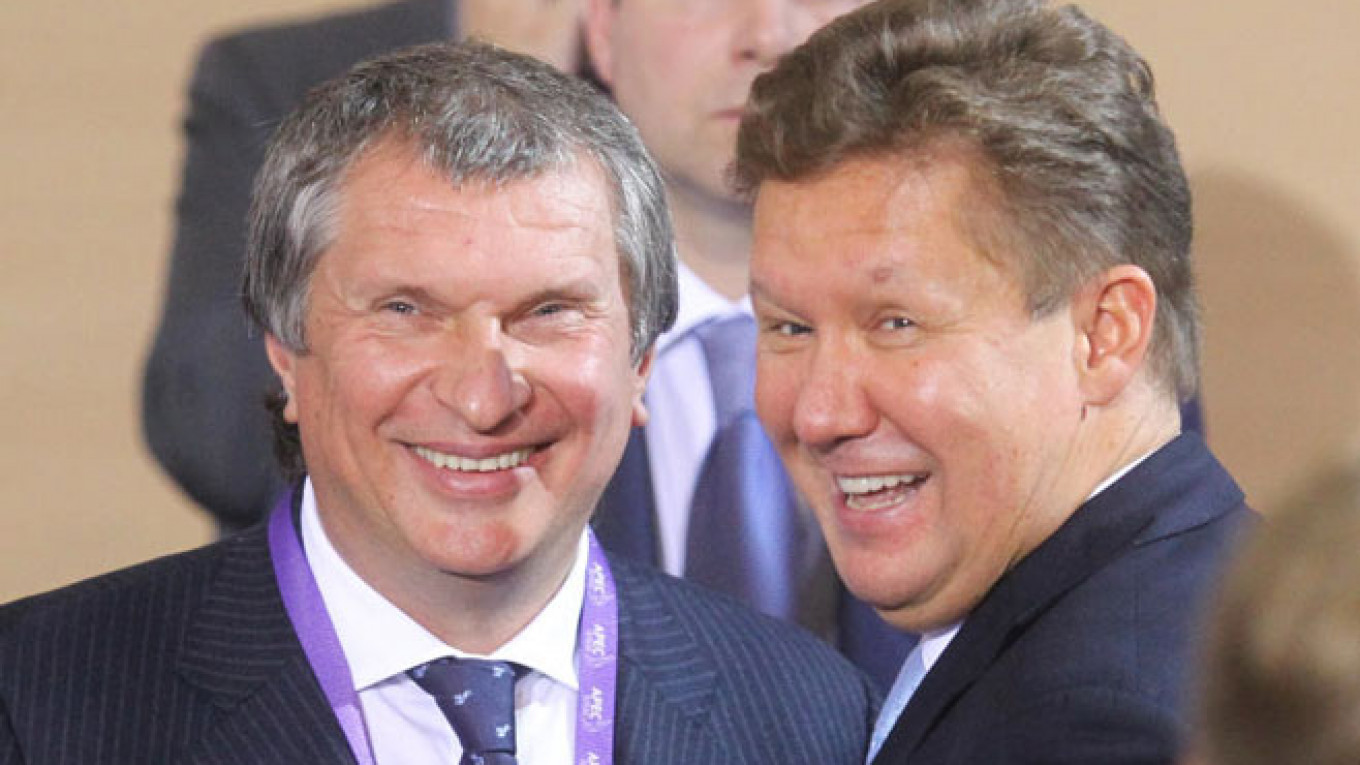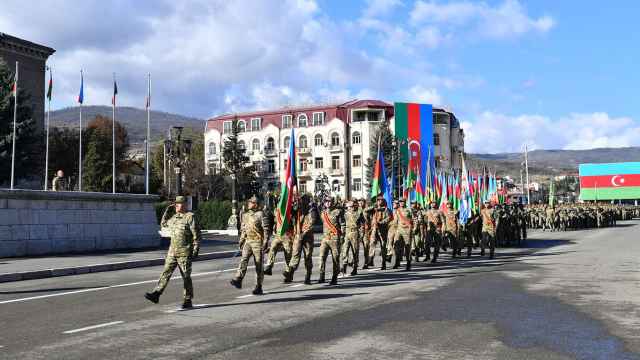The top managers of major state-owned companies won their recent dispute with the Russian government as to whether they must publish declarations of their income and property. They do not. That victory by the bureaucratic elite is no surprise: The current policy aimed at rallying the population around the president is not conducive to openness and transparency.
Since 2013, the government has tried to force state-owned companies to publish the incomes of their top managers pursuant to the presidential decree against corruption. Many senior managers did publish their incomes and nothing terrible happened to them.
But Rosneft, Russian Railways and Gazprom ignored the requirement — and the first two did so pointedly. Rosneft cited their lawyers' assessments of legal regulations as an excuse and Russian Railways head Vladimir Yakunin complained of an invasion of privacy. The companies argued that they are only accountable to the state, and regularly send their data to the government and the Federal Tax Service.
Now the government has capitulated, agreeing that the heads of joint stock companies are not obligated to publish declarations of income because it supposedly puts them at a disadvantage relative to other commercial companies.
The argument that income disclosure amounts to the sharing of trade secrets in a competitive market is hardly serious. Russian law narrowly defines trade secrets as know-how from which the holder derives benefit or profit. Can we consider the incomes of top managers know-how? Perhaps in an ironic sense, yes, but strictly speaking, no.
As for competition, two of the three state companies are natural monopolies, and the third enjoys numerous privileges from the state: These include the right to develop Russia's offshore oil and gas reserves to enlisting the help of the Central Bank to sell company shares in closed trading.
The whole point of requiring public declarations is to allow citizens to compare the quality of services that state-owned companies provide with the incomes their senior managers receive.
It is common knowledge that Russians are not always satisfied with the services provided by Russian Railways. Gazprom and Rosneft are primarily exporters and is difficult for the average citizen to evaluate their performance.
In fact, company reports for 2014 indicate that these corporations were not doing a very good job. Russian Railways earned a net profit of 740 million rubles ($13 million) in 2013, but it suffered a net loss of 44.1 billion rubles ($776 million) in 2014.
Net profits for Gazprom fell 3.3 times in 2014 to 189 billion rubles ($3.3 billion), and gas exports fell by 9.8 percent. Rosneft also saw net profits fall by 9.8 percent in 2014 to 350 billion rubles ($6.2 billion). Industry analysts add that those companies might actually be operating in the red, but that an accounting sleight of hand concerning currency risks masks that reality.
Russia is faced with a host of problems: a stagnating economy, frozen tariffs, Western sanctions, lack of credit and low oil prices. Many are the result of the state's own economic policy, its actions in Crimea and its isolationist tendencies.
And it is because Rosneft, Russian Railways and Gazprom are not only market entities, but also political tools that the authorities should help them. Obviously, in their dispute with the government, those companies can argue that it was the actions of the state that led to their financial losses.
However, the concept of the state in Russia has narrowed. That is why government officials feel it is not necessary for the Russian people to know how much money the top managers of state-owned companies earn.
Andrei Sinitsyn is a correspondent and op-ed contributor for Vedomosti. This comment originally appeared in Vedomosti.
A Message from The Moscow Times:
Dear readers,
We are facing unprecedented challenges. Russia's Prosecutor General's Office has designated The Moscow Times as an "undesirable" organization, criminalizing our work and putting our staff at risk of prosecution. This follows our earlier unjust labeling as a "foreign agent."
These actions are direct attempts to silence independent journalism in Russia. The authorities claim our work "discredits the decisions of the Russian leadership." We see things differently: we strive to provide accurate, unbiased reporting on Russia.
We, the journalists of The Moscow Times, refuse to be silenced. But to continue our work, we need your help.
Your support, no matter how small, makes a world of difference. If you can, please support us monthly starting from just $2. It's quick to set up, and every contribution makes a significant impact.
By supporting The Moscow Times, you're defending open, independent journalism in the face of repression. Thank you for standing with us.
Remind me later.






